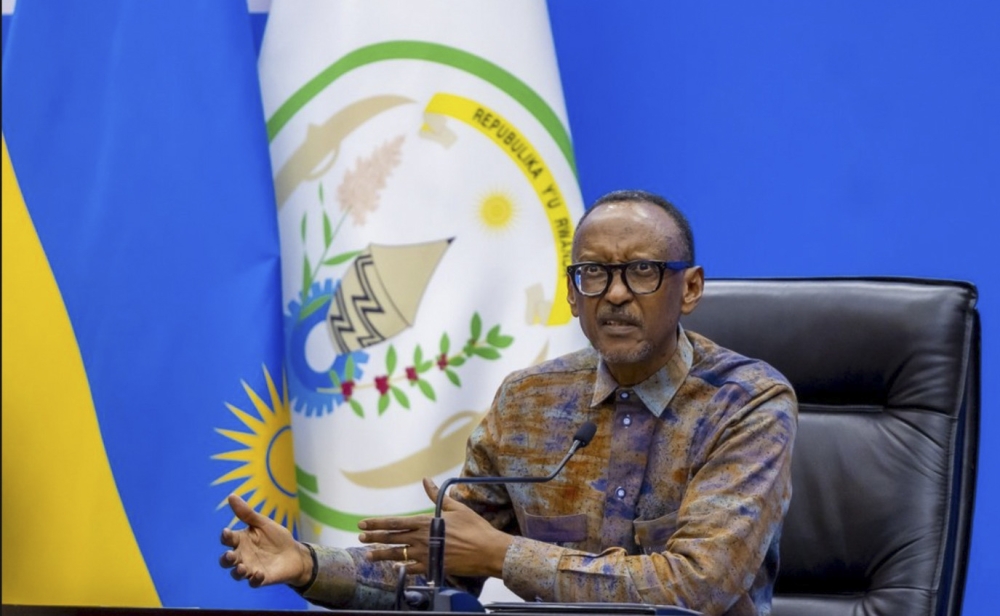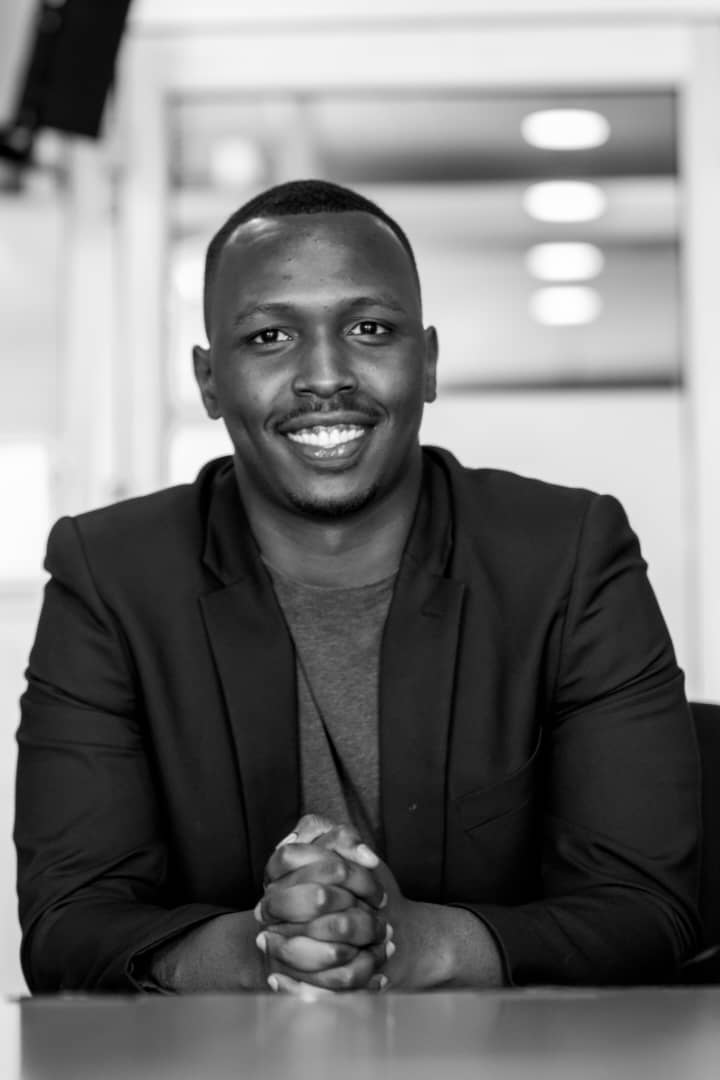

President Paul Kagame said on Thursday, January 9, that the security crisis in the eastern DR Congo is not insurmountable, maintaining that it could be addressed, and should have ended in the past.
"But you can't end it by manipulation, you can't end it by playing games,” Kagame pointed out reacting to the ongoing skirmishes in the eastern part of DR Congo, which has led to tensions between Rwanda and the neighbouring country.
ALSO READ: DR Congo: Nduhungirehe calls out International Community over double standards
Kagame said this while responding to various issues related to peace and security in the region, regional integration, the recently held elections in the United States which resulted in the election of Donald Trump who is set to commence his four-year term this month.
Commenting at length on the situation in DR Congo, Kagame said that much effort is lost in the blame games, leaving little to no time for finding a solution to the root causes of the crisis.
President Kagame pointed out sticking factors that led to the current crisis including the FDLR, which harbors a long-term sinister plan to destabilize Rwanda, comprising remnants of the perpetrators of the 1994 Genocide against the Tutsi.
After the Genocide, they moved into the eastern part of DR Congo after killing more than one million lives.
ALSO READ: Rwanda calls for &039;serious actions' on FDLR as Luanda summit is p[ostponed
"Does FDLR exist in that situation or not? Do people understand the history of FDLR or not? Why should FDLR even be an issue for discussion or why should it be a problem that can’t be resolved,” Kagame challenged, revealing that the Rwandan government has on numerous fronts engaged the DR Congo government on finding a long-lasting solution.
"We started with the DR Congo government, both the previous and current administration that we were ready to work together and even pledged to support them with whatever they think was needed, and that we would avail ourselves and resources to actually help fight FDLR and eliminate them, but they refused.”
Kagame went on to disclose that at one point, in 2019, he took the initiative of advising the DR Congo government to work together with its neighbouring countries – Rwanda, Uganda, and Burundi – as part of the efforts to eliminate the threat to security along the borders of the respective countries.
"What they did is that they allowed Uganda to fight the Allied Democratic Forces (ADF) rebels, they also allowed Burundi to quietly enter the country and fight their target-rebel groups, but when it came to Rwanda they refused.”
"Of course, that means something. They refused because they didn't want this FDLR problem addressed. This was way before the M23 problem flared up.”
Not Rwanda’s cause
President Kagame also dismissed claims from recent reports suggesting that the Kigali government supports M23, emphasizing that the rebels are not in any way related to Rwanda, with the exception of being a Kinyarwanda-speaking minority.
He recalled that Rwanda disarmed M23 rebels (around 600 of them ) who fled to the country in 2013.
Kagame noted that the country handed over the weapons to the DR Congo government before putting in place a repatriation roadmap to allow countless missions from the Kinshasa government to come and ‘study’ the problem.
The majority of the rebels who were disarmed are still living in Rwanda, according to the Head of State.
"The main bulk of M23 fighters including their leaders came from Uganda, they didn't come from Rwanda. This is a basic fact. Then questions arise on how it became Rwanda’s problem.”
Reacting to the hypocrisy published in the recent reports of the "UN Experts”, suggesting that the M23 rebel group is of Rwandan nationality, President Kagame said that for over two decades, less than 11,000 Congolese, out of 130,000 refugees have been relocated for settlement in different countries including the United States, Canada, and other Scandinavian countries.
"They come here and select people from refugee camps. But do these people come and take these refugees as Rwandans, no but instead as Congolese. But how about those who have not found a home, and they keep coming to Rwanda fleeing the fighting in DR Congo.”
"Then they quickly find a solution in blaming Rwanda for everything, and then they make statements of all kinds.”
But why should Rwanda be in DR Congo? Kagame responded.
"That is why they quickly find an answer and say that they are there to steal minerals. But if this is true, what happened to FDLR, and what led to the hundreds of Congolese refugees domiciling in Rwanda? Is it because the Rwandan Defence Forces are stealing minerals,” he reiterated.
The real issues
The crisis can be addressed, but according to President Kagame, it can not be addressed by just having processes whose importance is in the attendance but not in the results.
"I have discovered that being in Luanda or not amounts to the same result. It doesn't address the problem. We have to find a way of finding a solution, not processes being an end in itself.”
Kagame also warned that the international community has a hand in the ongoing crisis, particularly pointing out the billions sunk annually into a peacekeeping mission- the UN Mission for the Stabilisation of DR Congo (MONUSCO) – which has produced no results two decades later.


